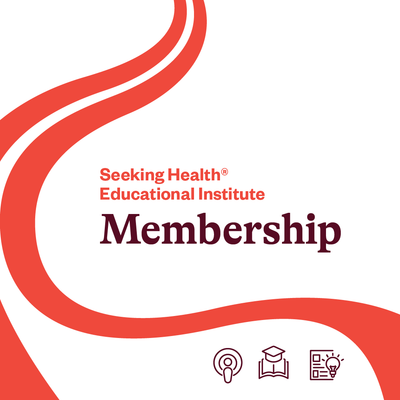If you’ve decided it’s time to stop birth control pills so you can try to get pregnant, you might be wondering if there’s anything you need to do. How quickly does fertility return? Are there extra nutrients that you need? What’s the fastest way to get pregnant when you stop contraceptives?
Everyone is different. The answers to these questions largely depend on:
- How long you were on birth control
- What type of contraception you used
- Your age
- Your partner’s age
- Other health conditions
This post will give you all the basics and help you craft a plan for supporting natural fertility after birth control.
When Does Fertility Return After Birth Control?

The type of birth control you were taking can impact how quickly your fertility returns. That refers to how quickly your body will be able to ovulate. You can’t get pregnant without releasing an egg, and most forms of birth control prevent ovulation. Barrier methods, spermicide, and copper intrauterine devices (IUDs) do not prevent ovulation.
If you were taking a different form of birth control, the time to fertility can vary. Implants, injectable birth control, or hormonal IUDs take more planning prior to getting pregnant. In some cases, it can take anywhere from six months to two years after discontinuing these forms of birth control before ovulation resumes.
Even copper IUDs must be removed in advance by your doctor, so they require some planning ahead.
If you stop taking oral contraceptives or other types of birth control and find that it’s taking longer than expected for fertility signs to return, it may not be the birth control that’s to blame.
Research finds that, overall, time to pregnancy is not different for women after birth control than it is for women who never took it.
If you’re a smoker or over age 35, however, fertility may be lower.
The most important thing to support fertility after birth control is relearning your body’s fertility signs. If you’ve been on birth control for months or years, you may not be as tuned into your fertility. Tracking your cycle is the most effective way to determine when you’re ovulating and if you have other fertility signs.
Whether it’s been one cycle or one year since you’ve stopped contraceptives, it’s always a good idea to see your OB-GYN if you have questions about fertility or pregnancy.
How Long Does It Take to Get Pregnant After Birth Control?

A study of more than 2,000 women explored how long it took to get pregnant after stopping birth control. (1) This study looked at a common birth control method that used progestin and estrogen.
The results found that overall, fertility and time to pregnancy was not impacted by previously taking birth control. Only in smokers or women over age 35 was the time to pregnancy different. But in the non-birth-control population, fertility rates are also lower in smokers or women over 35. So—birth control use does not change fertility.
The study showed: (1)
- 21% of women got pregnant 1 cycle after stopping birth control
- More than 45% got pregnant after 3 cycles
- More than 79% got pregnant after a year
- More than 88% got pregnant after 2 years
In the study, the average time to pregnancy after stopping contraceptives was 5.5 cycles. This is consistent with general time to pregnancy and fertility rates in women under 35. The general rule of thumb is that if you’re under 35, you only need to seek infertility treatment if:
- It’s been more than a year of regular, timed intercourse without pregnancy
- You do not have regular periods
- You have repeated miscarriages
The timeframe shortens to 6 months for women over age 35.
Now, sure, you probably don’t want to hear that it could take a year or longer to get pregnant. For the purposes of time to pregnancy, the study looked at women who were using natural family planning methods and who had stopped birth control in advance of trying to conceive. So, the study wasn’t specifically following women who stopped birth control and wanted to get pregnant the next cycle. (1)
Factors that affect time to pregnancy after birth control are more than likely related to other things that might include:
- Whether you had irregular periods
using birth control - Your health conditions
- Your age
- Your partner’s age and health
Infertility impacts 9 percent of men and 12 percent of women of reproductive age. (2) If you previously had irregular periods, your body may not ovulate regularly. Conditions like PCOS or endometriosis can also influence your ability to conceive. Age and hormone balance are also important to consider when assessing your overall fertility. These are outside of the influence of birth control.
If you’ve stopped birth control with plans to get pregnant, and you’ve charted your cycle and have concerns over your fertility, see your gynecologist. Get a fertility workup for you and your partner.
Birth Control & Nutrient Depletion

One factor you’ll want to consider is whether birth control impacted your nutrient levels. Typical forms of hormonal birth control have been shown to deplete nutrients or change the way your body stores them. The effect is more pronounced the longer you take them. Nutrients shown to be depleted by birth control include: (3, 4)
- Folate
- Vitamin A
- Vitamins B1, B2, B3, B6, and B12
- Vitamin C
- Vitamin E
- Calcium
- Phosphorus
- Potassium
- Magnesium
- Selenium
- Zinc
Many nutrients listed above are critical for methylation and DNA synthesis. Low or depleted stores could result in problems conceiving, low-quality eggs, or even embryo problems. Folate deficiencies can contribute to neural tube defects, which occur in the first days and weeks after conception. You can supplement during pregnancy, but in the most nutritionally demanding time of life, you don’t want to be playing catch-up with critical nutrients.
If you’ve been on birth control for months or years, it’s important to focus on nutrient stores before pregnancy.
Some of these nutrients are also associated with infertility or a longer time to conception. When intake or levels are too low, most notably with zinc and selenium, it can contribute to problems getting pregnant. (5)
When you’re correcting nutrient deficiencies, you can’t just take “extra” and assume you can catch up. For some nutrients, like vitamin A and minerals, you can definitely take too much and end up dealing with toxicity. It’s important to work with your healthcare provider to determine what’s optimal for your wellness. When taking supplements, follow recommended serving sizes or take as your doctor directs.

How to Support Fertility After Birth Control

Supporting fertility after birth control is not much different than supporting it at any other time! After you’ve considered whether you need to address any nutrient depletions, you’ll want to focus on other fertility-related factors.
Nutrition
There is no “one size fits all” fertility diet. But you can eat to support your optimal health. A nourishing, nutrient-dense diet doesn’t have to be a perfect one. You don’t have to follow a restrictive food plan.
Learn more about what is (and isn’t) a fertility diet in this blog post.
Lifestyle
There are many ways to support fertility with lifestyle. Most of them are common sense. Get enough sleep. Be physically active. Don’t smoke. Don’t consume too much alcohol.
It’s easy to get mired in restrictive or superstitious behaviors when you really want to have a baby. But a balanced lifestyle is the one that best supports fertility. Normal levels of stress won’t prevent conception, either. So don’t stress about trying not to be stressed!
Want to know more? Use these 6 Tips for Trying to Conceive to optimize your lifestyle for pregnancy.
Supplements
Supplements can support fertility, just like they can help other aspects of health. But you should take the products that are right for you. Ask your doctor for advice. Always seek high-quality brands, and take supplements as directed.
Taking a quality prenatal vitamin whether you want to get pregnant now or months from now is always an important starting place.
Learn more about the best fertility support supplements (backed by evidence!) in this blog post.
Listening to Your Body
When you’re fresh off of birth control, you may not be as in touch with your fertile days. Charting your fertility and tracking your cycle can get you up to speed. You don’t have to be an expert at it, and even if you already know when you ovulate, understanding your fertility signals can be a great health tool.
Learn how to start fertility charting in this blog post.
When to Seek Medical Help

If you’ve stopped taking birth control because you want to get pregnant, it can be frustrating if it doesn’t happen as quickly as you want.
The conventional rule is to seek medical help for infertility if it’s taking longer than one year under age 35 or longer than six months if you’re 35 or older.
However, if your partner is older, you have other conditions, or you simply want to be assured that you’re healthy, it’s always a good idea to check in with your doctor.
If you are having trouble getting pregnant, it’s not likely that your birth control caused it.
There are many reasons why you may experience infertility. Find a healthcare provider who will get you the answers that you need.
The Bottom Line
Many women take birth control for one reason or another. If you’ve stopped taking contraceptives because you’re ready to try for a baby, that’s exciting! While it may take some time to get used to your fertility signals, birth control itself doesn’t decrease fertility or make it harder to get pregnant once you’ve stopped.
If you’re under 35, consider seeking infertility treatment only if you’ve been trying to conceive (TTC) for more than a year, your periods are irregular, or you’ve experienced recurrent pregnancy loss. We're wishing you the best on your journey to motherhood!
References
- https://journals.lww.com/greenjournal/Fulltext/2009/09000/Rate_of_Pregnancy_After_Using_Drospirenone_and.20.aspx
- https://www.cdc.gov/reproductivehealth/infertility/index.htm
- https://pubmed.ncbi.nlm.nih.gov/23852908/
- https://www.ncbi.nlm.nih.gov/pmc/articles/PMC4922824/
- https://www.ncbi.nlm.nih.gov/pmc/articles/PMC6683068/












